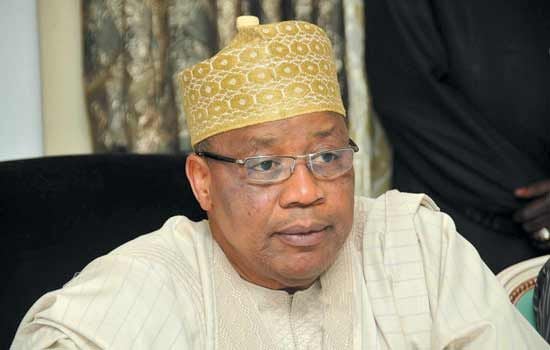I find the brouhaha after last Sunday’s alleged issuance of a statement by former military Head of State, Ibrahim Badamosi Babangida, the denials and eventual validation that followed it very symptomatic of the various levels of crises that has continued to plaque our nation.
The first is our perennial challenge with leadership. Say what you would, Nigeria is bereft of quality leaders who subordinate their personal, regional and religious interests to the common good.
And here, I do not necessary speak of elected leaders. In representative democracy, you must of course elect leaders to govern in the interest of the people. However, in ideal democratic practice, power is actually domiciled in the people. Politicians would always be politicians, no matter where they are or what they say. Paramount in the minds of the best of politicians, at all times, is their personal and party interests, in that order.
Late French statesman and President, Charles de Gaulle concluded the matter in his popular assertion that “politics is too serious a matter to be left to the politicians.” Citizens cannot just go to sleep on their leaders and the plethora of interests that govern their hearts.
Advertisement
So vigilance, a constant reminder of the promises they made and occasional dispassionate speaking to power are the only ways to retain the sanity and fidelity of political leaders.
Unfortunately the mass of the people usually lack the sufficient capacity to play the ombudsman on the government they have appointed.
Sometimes by the deliberate orchestration of governments, the people are so economically pressed down and irredeemably uninformed to garner the steel to speak for themselves. They do not know their roles or are too hit by the need for subsistence to contemplate exercising their right of protest; that is when they are aware of the existence of such privileges!
Advertisement
This is why any society desirous of sustainable development must at every time, retain a crop of veritable statesmen, who do not eat from the plate of government and seek nothing but the prosperity of their nation in the present and in the future.
Jesse Rufus Fears, late American Professor of Classics, said that every statesman must possess four qualities namely: A bedrock of principles; a moral compass; vision and the ability to build a consensus to achieve that vision. Men and women in this class speak truth to power, they do not mind whose ox is gored and would stand by what they say, irrespective of the hardship that it brings to them or even the error of their position. The drama that followed Babangida’s Sunday letter exposed Nigeria’s deficiency in the supply of statesmen.
My worry about Babangida’s vacillation on the issue of which of the two statements is legitimately made by him, is not so much about what he said in any of these two documents but the fact that the former Nigerian leader has refused to, until date, issue another statement that lays the issues to rest.
Not even the unwarranted declaration of Kassim Afegbua wanted by police authorities would motivate a final clarification different from Monday’s THISDAY exclusive report that Babangida had validated the first statement.
Advertisement
But the tone and content of the two statements suggest that they both emanated from the retired General or his close associates.
Although the first statement entitled “Towards a National Rebirth,” was signed by Afegbua and fired straight salvos at President Muhammadu Buhari and the unsatisfactory performance administration, the second statement which had the signature of the former Military General literarily broached all the issues that the first statement was eloquent about.
Although the latter statement was a euphemistic art, it spoke about the poor handling of the clashes between herdsmen and farmers across the country, it suggested a change of military strategy in the fight against Boko Haram. While it was not direct about the need for devolution of powers like the first statement was, it spoke about the pervasive “clamour for the realignment of governance in the country,” and welcomed same by only advising that any such move must be channeled through legislation and the supremacy of the constitution.
Indeed but for the exclusivity of the suggestion that Buhari should consider handing over power to younger elements in 2019 and the emphatic sentiment for a two-party state in the first and second letters respectively, the second statement is only a poor and equivocal rehash of the same thoughts in the first. That it would ever be denied and a second statement issued by whoever and without a final word from the man at the drama is a sad testimony of the dearth of quality statesmanship in the country and the attendant rot.
Advertisement
When men like Babangida, known by monikers ranging from Maradona to evil genius to Machiavellian Prince in recognition of his legendary tendency to oscillate and attempt to manipulate minds still appropriate and reprobate at their advanced age, a country is in trouble.
But that is not the only troubling thing about this matter.
Advertisement
The confusion created by the statements has also, once again, exposed the failure of national institutions, in this case, the Nigeria Police.
While the last word on this matter, according to the THISDAY report, is the affirmation of the first document by Babangida, the Inspector General of Police, Mr. Ibrahim Idris has instructed his men to declare Afegbua wanted.
Advertisement
The first question to ask here is whether such declaration is normal police protocol. Before he was declared wanted, Afegbua was not being invited by the police, neither had the police procured any court warrant to arrest him. Yet, the national institution went ahead to declare him wanted.
The second worrisome point here is to ask what the locus of the police is in the matter. Afegbua was declared wanted for a colony of offences including “making false statements, defamation of character and act instigating public disturbance throughout the country.”
Advertisement
All these when Babangida did not officially denounced the statement, when no one has reported the assassination of his character and we have not seen any evidence of breakdown of law and order resulting from Sunday’s statement. But the action of Idris and the force he leads in this matter tells of the character of public institutions in Nigeria.
First off, public institutions in the country are only so in name. They consider themselves to be in the service of the President and do not care what the interest of the people are. This is why even without any prompting from the Commander in chief, most Nigerian institutions would take it upon themselves to bare their fangs on anyone perceived to be against the interest of the president, who is their benefactor. That is the point Idris, once again indorsed, on Tuesday.
In addition, fact that the IGP, in spite of the avalanche of crisis begging for attention across the country would have the time to issue directives for the arrest of a man only speaking for a former President shows how unoccupied he indeed is.
On the same day that Police Public Relations Officer, Moshood Jimoh issued a statement informing of his principal’s order for the arrest of Afegbua, he was on National television defending allegation of the police’s inefficient handling of the farmer/herders crisis in Benue State and calling the Governor Samuel Ortom a “drowning man!”
Such is the level of indiscipline, partisanship, lack of respect for the will of the people that thrive in institutions funded by the state. These lack of professional and misconducts truly appear too peripheral to determine the crying state of our underdevelopment but they indeed are the little foxes that spoil our national vine.
Twitter: @niranadedokun
Views expressed by contributors are strictly personal and not of TheCable.
Add a comment







